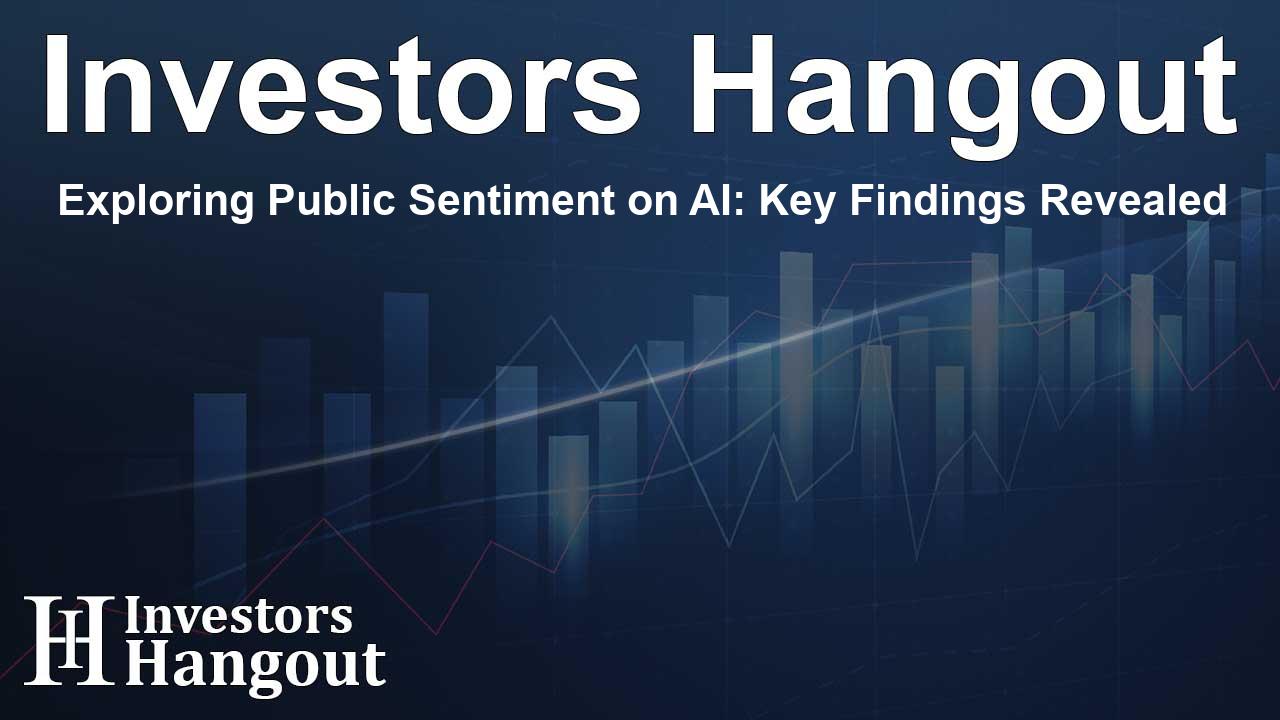Exploring Public Sentiment on AI: Key Findings Revealed

Understanding Public Perception of AI and Civic Engagement
Recently, the Seismic Foundation released a significant report titled "On the Razor's Edge: AI vs. Everything We Care About", showcasing insights gathered from more than 10,000 respondents across diverse demographics. This report aims to spark awareness and advocacy regarding the effects of artificial intelligence on daily life.
This research highlights an evolving viewpoint among the public, as they increasingly question the more optimistic narratives surrounding AI. Many individuals are starting to see AI as a potential detriment to aspects of their lives, expressing concerns about deteriorating relationships, challenges for future employment, and widening social disparities.
It appears that sentiments regarding AI are poised to shift into the mainstream consciousness. With mounting concerns about its implications on everyday issues, public interest in AI advocacy is intensifying.
The Survey Reveals Tensions and Sentiment Trends
According to the survey, individuals are beginning to develop a more profound awareness of how AI intertwines with their most pressing concerns. There is a notable rise in unease, suggesting that civic engagement around AI is on the verge of expanding.
Sander Volten, the founder and CEO of Seismic Foundation, stated, "Our survey reveals that people care about AI as it directly impacts their lives – their families, relationships, and mental well-being. This concern indicates a significant shift towards recognizing AI as a public issue."
Public Opinion: A Delicate Balance
The survey indicates that public sentiment is finely balanced regarding AI's potential effects on the future, with responses aligned approximately equally across three perspectives: hope, fear, and a sense of ambivalence. The report identified five groups that are politically and emotionally engaged with the topic: Tech-Positive Urbanites, Globalist Guardians, Anxious Alarmists, Diverse Dreamers, and Stressed Strivers.
Volten summarizes this sentiment beautifully, stating that there are "five areas where public emotions surrounding AI are highly volatile. A singular event – be it bad news, layoffs, or scandals – could ignite widespread activism on these issues."
Potential Drivers for Civic Action
The findings emphasize that any significant public incident related to AI – especially those impacting children, job markets, or personal relationships – has the potential to catalyze a substantial public response. The study also highlights key concerns revealed by the data:
- The foremost concern among respondents is the potential for AI to erode human relationships, with 60% prioritizing this issue over fears of mass unemployment caused by AI (57%).
- A significant 67% of parents expressed worries about their children forming emotional attachments to AI, indicating a deep-seated fear of the changes AI might impose on familial bonds.
- Interestingly, the survey found that women displayed 2.2 times greater concern about AI impacts compared to men.
- A striking 37% of respondents from France believe a romantic relationship with AI equates to infidelity, a view shared by 50% of those in the U.S.
- Students are voicing concerns as well, with only 41% stating that their education adequately prepares them for a career landscape transformed by AI.
- Public sentiment indicates a desire for more AI regulation, with those advocating for tighter rules outnumbering others interested in existing regulations by a ratio of three to one.
- Moreover, there is widespread mistrust towards large AI institutions, with the public perceiving these entities as potentially acting against their interests.
The Path Ahead for AI Advocacy
The research findings underscore the urgent need for increased dialogue and action concerning AI's societal impacts. As individuals recognize the implications of smart technologies on their lives, the potential for mobilization and advocacy is growing. Seismic Foundation intends to leverage this momentum to ensure that responsible AI development remains a profound priority.
Frequently Asked Questions
What is the main focus of the Seismic Foundation's report?
The report highlights public perceptions of AI and identifies five groups primed for civic engagement regarding its implications.
How many individuals participated in the survey for the report?
Over 10,000 people participated in the survey across the United States and Europe.
What are the main concerns expressed by the public about AI?
Main concerns include the erosion of human relationships, obstacles for children concerning employment, and reinforcing social inequalities.
Which groups are identified as key players in AI civic action?
The identified groups include Tech-Positive Urbanites, Globalist Guardians, Anxious Alarmists, Diverse Dreamers, and Stressed Strivers.
What does the public desire regarding AI regulations?
A significant majority of respondents advocate for more stringent regulations on AI, surpassing those satisfied with current regulations by three-fold.
About The Author
Contact Dylan Bailey privately here. Or send an email with ATTN: Dylan Bailey as the subject to contact@investorshangout.com.
About Investors Hangout
Investors Hangout is a leading online stock forum for financial discussion and learning, offering a wide range of free tools and resources. It draws in traders of all levels, who exchange market knowledge, investigate trading tactics, and keep an eye on industry developments in real time. Featuring financial articles, stock message boards, quotes, charts, company profiles, and live news updates. Through cooperative learning and a wealth of informational resources, it helps users from novices creating their first portfolios to experts honing their techniques. Join Investors Hangout today: https://investorshangout.com/
The content of this article is based on factual, publicly available information and does not represent legal, financial, or investment advice. Investors Hangout does not offer financial advice, and the author is not a licensed financial advisor. Consult a qualified advisor before making any financial or investment decisions based on this article. This article should not be considered advice to purchase, sell, or hold any securities or other investments. If any of the material provided here is inaccurate, please contact us for corrections.
